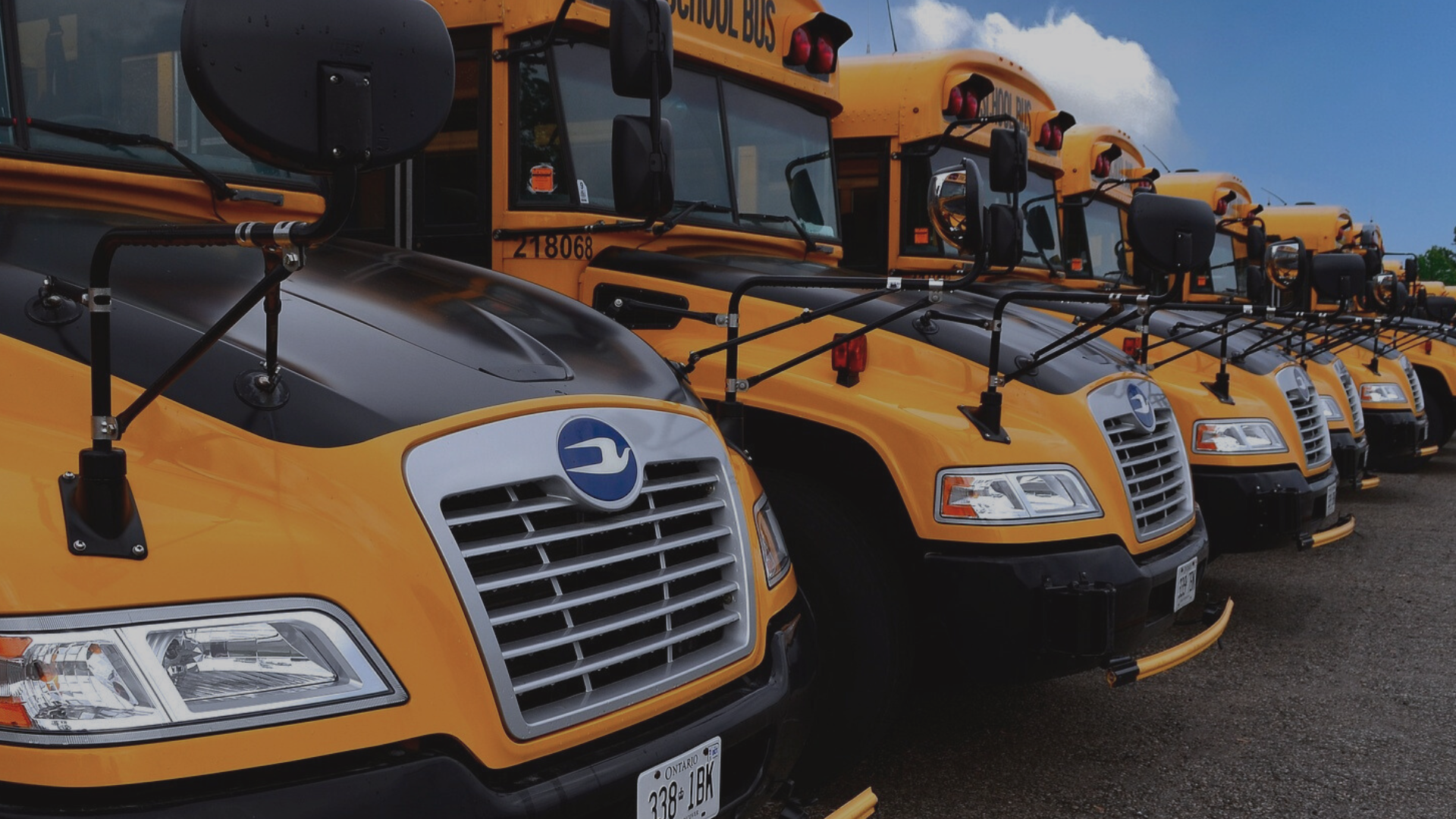Tariff Policy Shifts and Their Implications for Construction Costs and Energy Projects
- Topics :
- Energy Higher Education
Maryland’s $36M Investment in School Energy Efficiency
Published October 14, 2025

Public schools across the United States are increasingly viewed as a key sector for advancing local decarbonization. In Maryland, that vision took a tangible step forward with Governor Wes Moore’s announcement of a $36 million investment toward energy efficiency, clean energy adoption, and data-driven performance management in public schools. The initiative reflects a growing recognition that modernizing educational infrastructure is not only an environmental imperative but also a fiscal one. With aging facilities and rising utility costs, many districts are turning to integrated energy management strategies to improve both sustainability and operational resilience.
For technology providers, utilities, and consultants, Maryland’s model represents a roadmap for how the K–12 sector can embrace data-informed upgrades. As federal and state funding opportunities expand, understanding how to structure proposals, measure impact, and demonstrate verified outcomes becomes a competitive advantage. Within this evolving landscape, NZero’s capabilities in automated data integration, AI-driven retrofit simulation, and comprehensive carbon tracking offer valuable tools for schools and partners pursuing measurable energy performance and decarbonization outcomes.
Understanding Maryland’s $36 Million Energy Efficiency Program
Maryland’s investment is aimed at accelerating the modernization of public school facilities through three primary objectives: upgrading inefficient infrastructure, expanding clean energy capacity, and improving the visibility of energy performance. The initiative includes funding for HVAC and lighting retrofits, solar installations, battery energy storage, and building automation systems. Equally important, it includes resources for energy data management, recognizing that schools cannot optimize what they do not measure.
The Maryland Energy Administration and Department of the Environment are coordinating the program to align with state climate goals, including achieving net-zero emissions by 2045. Beyond emissions reduction, the initiative promises significant operational benefits, from reducing long-term utility expenditures to improving classroom comfort. The state’s inclusion of data management as a funding priority sets a precedent for transparency, accountability, and continuous improvement across the public sector.
For energy solution providers, this model provides a clear entry point. The state’s procurement structure emphasizes partnerships that combine technology deployment with measurable outcomes. Vendors offering advanced analytics, IoT-enabled systems, or digital reporting platforms have an opportunity to differentiate themselves by demonstrating how their tools can help schools verify savings and optimize operations over time.
The Opportunity Landscape for Energy Solution Providers
School districts represent a unique but underutilized segment for energy management services. Many operate aging infrastructure built decades ago, often without central data systems to track consumption or performance. This creates inefficiencies and makes it difficult to access available funding or verify energy savings once projects are complete.
Technology providers and consultants can add value in several ways:
- Conducting energy audits to identify high-impact retrofit opportunities.
- Designing modular retrofit packages that align with local grant or performance contracting frameworks.
- Providing ongoing monitoring and verification to demonstrate compliance with funding requirements.
Utilities and energy service companies (ESCOs) can also play a role by offering demand response programs, load management tools, or incentive programs tied to verified energy reductions. Success in this environment increasingly depends on transparent, data-driven reporting that allows schools to demonstrate performance outcomes to state agencies and funding bodies. This is where the integration of continuous data analytics and AI-driven optimization becomes essential.

How NZero Can Support School Energy Management Initiatives
NZero’s platform is designed to help organizations measure, manage, and reduce their energy and carbon footprint through real-time, automated insights. For public school districts, its capabilities address some of the most persistent challenges in executing and maintaining large-scale efficiency and decarbonization programs.
Automated Data Integration
NZero automates the integration of utility and sub-metering data across multiple campuses, eliminating the need for manual data collection and reducing the administrative burden on facility teams. The platform aggregates information from electric, gas, and water meters in near real time, providing a unified view of energy use across buildings. This continuous stream of data allows school administrators and consultants to pinpoint inefficiencies, detect anomalies, and evaluate the impact of completed retrofits with precision.
Automated integration also supports compliance by maintaining accurate, verifiable records that align with grant and performance reporting requirements. For schools managing dozens or even hundreds of utility accounts, this functionality can reduce the data management workload by hundreds of hours annually.
Performance Dashboards
The NZero performance dashboard provides a visual interface that transforms raw data into actionable insights. Facility managers can view energy consumption trends, compare building performance, and identify where maintenance or equipment upgrades are yielding measurable improvements. For project partners and funders, the dashboard offers transparent reporting, making it easier to demonstrate energy and emissions savings.
Customizable dashboards can be configured to track key performance indicators such as cost per square foot, energy intensity, or emissions reduction against baseline conditions. This visualization capability turns data into a strategic management tool, supporting both operational decisions and long-term planning.
AI Retrofit Simulations
NZero’s AI-driven simulation engine enables schools and consultants to test thousands of retrofit scenarios digitally before implementation. By modeling different combinations of upgrades such as HVAC replacement, LED lighting, and solar PV installation, the system calculates projected savings, payback periods, and emissions reductions. This approach helps decision-makers identify the highest return on investment strategies based on actual building data.
Through these simulations, districts can prioritize retrofits that align with both budget constraints and sustainability goals. The AI engine continuously refines its recommendations as more performance data becomes available, ensuring that energy management plans remain dynamic and evidence-based. This capability supports a more confident, data-backed decision-making process for administrators and funding partners.
Carbon Tracking and Scope 3 Integration
Beyond energy consumption, NZero tracks emissions across Scopes 1, 2, and 3, translating operational data into a comprehensive carbon profile. This level of granularity enables school districts to understand not only their direct and purchased energy emissions but also those associated with procurement, waste, and transportation. The ability to measure and manage emissions holistically positions schools to meet state and federal reporting requirements as they evolve.
Carbon tracking also supports grant compliance and ESG reporting by providing transparent, auditable records of emissions performance. As public entities face increasing pressure to align with decarbonization targets, these insights are critical for demonstrating accountability.
Assurance and Compliance Support
NZero integrates with third-party assurance processes to ensure data integrity and regulatory alignment. The platform’s structured datasets can be easily exported for independent verification, enabling schools to validate reported savings and emissions reductions. This is particularly valuable for districts participating in state or federal funding programs that require documented evidence of performance outcomes.
By combining automation, AI-driven modeling, and verified reporting, NZero helps schools transition from isolated efficiency projects to comprehensive energy management programs grounded in measurable results.
Scaling Maryland’s Blueprint Nationwide
Maryland’s $36 million initiative provides a replicable framework for states seeking to modernize their education infrastructure through data-informed investments. By integrating efficiency retrofits, clean energy adoption, and transparent performance tracking, the program positions schools as both energy consumers and data producers, contributing to the broader decarbonization effort.
For technology providers, consultants, and utilities, the key takeaway is the growing demand for solutions that deliver measurable, verifiable impact. Integrating tools like NZero early in the proposal and project design phase ensures that every kilowatt-hour saved and every ton of CO2 avoided is accurately captured and reported. As states and districts scale their energy programs, this data-driven approach will define the next generation of public-sector decarbonization.
References
- Maryland Daily Record: Moore announces $36M toward energy efficiency in public schools
- Maryland Energy Administration: Energy Efficiency Programs
- U.S. Department of Energy: Efficient and Healthy Schools Program









